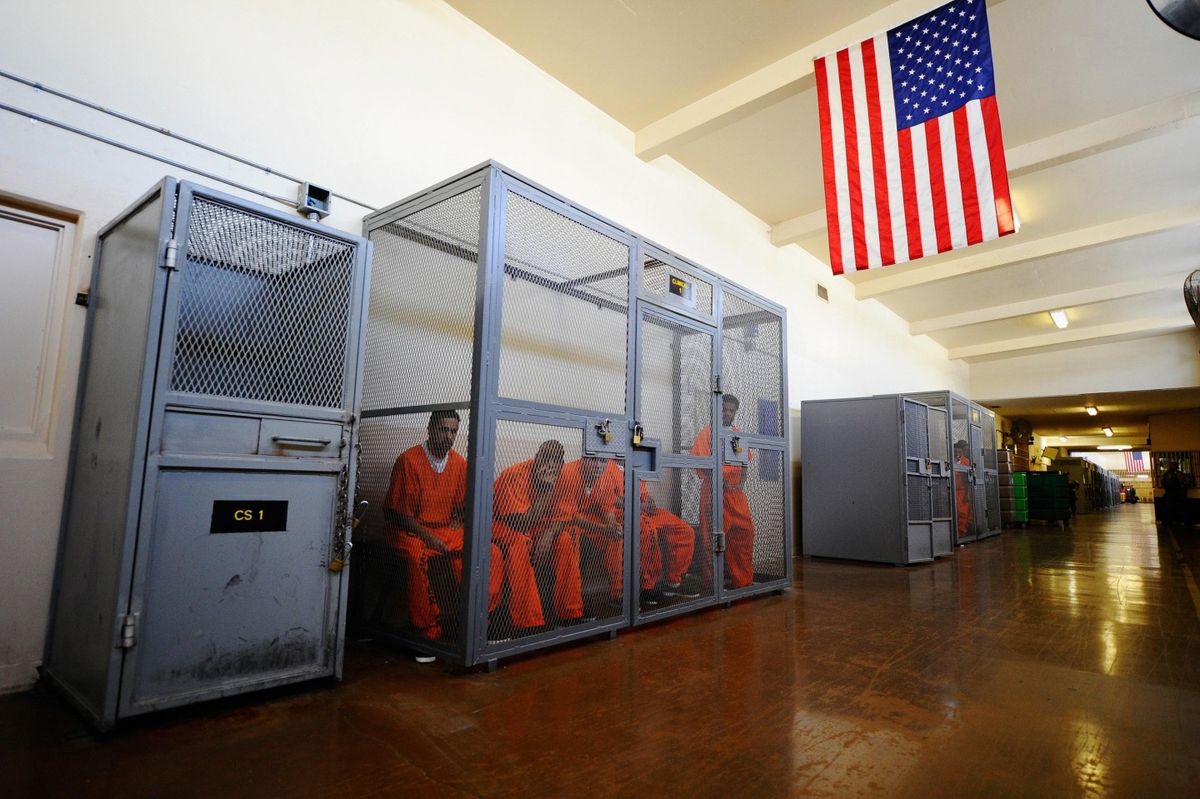Supreme Court allows Florida to enforce law restricting former felons owing court fines from voting

A few minutes every morning is all you need.
Stay up to date on the world's Headlines and Human Stories. It's fun, it's factual, it's fluff-free.
On Thursday, the United States Supreme Court upheld a temporary halt by the US Court of Appeals for the 11th Circuit that blocks Florida’s former felons from voting if they are unable to pay court fines and fees related to their conviction.
Although the Supreme Court majority didn’t offer a reasoning for its decision, which is typical of emergency rulings, three liberal justices dissented.
Joined in dissent by Justices Ruth Bader Ginsburg and Elena Kagan, Justice Sonia Sotomayor wrote that the court’s order “prevents thousands of otherwise eligible voters from participating in Florida’s primary election simply because they are poor.”
Floridians pass Amendment 4
In 2018, 65% of Florida’s registered voters passed Amendment 4, which allowed felons to vote who had not been convicted of murder or sexual offences and had completed “all terms of sentence.”
The amendment, which went into effect in January, would have restored the voting rights of approximately 1.4 million people in the state.
However, soon after it was passed, Florida’s Republican Governor Ron DeSantis signed a bill into law stating that “all terms of sentence” includes the requirement of paying legal fees, fines and restitution.
The law created problems for former felons as there was no administrative system in place that could inform them of the amount they owed or if they owed anything at all.
Lisa Foster, co-director of Fines and Fees Justice Center, which seeks to eradicate fees in the US justice system, told CNN that the fines and fees required from former felons can be wide ranging from several hundred to thousands of US dollars. They can be especially high if the former felon is unemployed.
She added that if the felon is unable to pay the court charges within three months, they are referred to private debt collectors, who can levy up to 40% interest on the court debt.
The law was challenged by numerous lawsuits accusing it of violating the 14th Amendment’s Equal Protection clause by discriminating against felons who are poor. The law was also accused of violating the 24th Amendment, which prohibits poll taxes.
In May this year, Federal District Court Judge for the Northern District of Florida Robert Hinkle ruled that the law amounted to an unconstitutional voting tax on former felons. The ruling also ordered the state to inform former felons of the amount they owed and whether they were eligible to vote. If the state didn’t provide this information within 21 days, they could vote in the upcoming election.
After the state of Florida filed an appeal, the Court of Appeals for the 11th circuit, which has a conservative majority of judges, issued a temporary halt to Hinkle’s ruling.
Civil liberty advocates respond
In response, the Campaign Legal Center in Washington, the American Civil Liberties Union (ACLU) and other plaintiffs petitioned the Supreme Court to overturn the Appeals court decision, an appeal that was denied.
The petitioners had argued that the Appeals court decision had “thrown the election rules into chaos” by putting under question the voting eligibility of thousands of felons.
However, the State’s lawyers responded in court filings to the Supreme Court that, “Far from creating the chaos described by applicants, the Eleventh Circuit’s order actually quells the chaos created by the district court’s unprecedented injunction.”
Justice Sonia Sotomayor disagreed in her dissent, writing that the Supreme Court’s order “allows the Court of Appeals for the Eleventh Circuit to disrupt Florida’s election process just days before the July 20 voter-registration deadline for the August primary.”
“This Court’s inaction continues a trend of condoning disfranchisement,” she added.
Numerous voter rights activists and lawyers have expressed disappointment with the decision.
Campaign Legal Center lawyer Paul Smith said he was “deeply disappointed”, noting that, “Florida’s voters spoke loud and clear when nearly two-thirds of them supported rights restoration at the ballot box in 2018. The Supreme Court stood by as the Eleventh Circuit prevented hundreds of thousands of otherwise eligible voters from participating in Florida’s primary election simply because they can’t afford to pay fines and fees.
“We look forward to continuing to fight for Florida voters so they can participate in the General Election in November."
Deputy Director of the Florida Rights Restoration Coalition Neil Volz said, “Having cried and walked with numerous families and individuals impacted by this legal roller coaster over the last year, we are continually focused on reminding people that this is not a political science exercise to the people directly impacted by these type of decisions.”
The Coalition provides legal and financial assistance to other felons so they can pay their fines.
The Appeals Court for the 11th Circuit has scheduled a final hearing on August 18, the same day as Florida’s primary elections, to decide whether the law requiring former felons to pay their court fines and fees before being eligible to vote is unconstitutional or not.
Have a tip or story? Get in touch with our reporters at tips@themilsource.com




Comments ()